10 Best Content Management System for SEO & Why

Choosing the best content management system for SEO can make or break your website's visibility in search engines. Creating and managing content is at the heart of successful online marketing strategies in today's digital landscape. However, not all platforms are created equal when optimizing your content for search engines. Choosing the right Content Management System (CMS) can dramatically impact your site’s visibility, user experience, and overall SEO success. So, what makes one CMS better for SEO than another? This article will explore the 10 best content management systems for SEO and explain why each stands out in search engine optimization.
1. WordPress: The King of CMS for SEO
If you’ve spent any time researching CMS platforms, you’ve probably heard of WordPress. It’s often the go-to for bloggers, businesses, and eCommerce sites alike—and for good reason. WordPress is a free, open-source platform that allows for extensive customization and flexibility.

Why WordPress Excels for SEO:
- SEO Plugins: WordPress boasts a rich collection of SEO plugins like Yoast SEO and All in One SEO Pack, making it easy for even beginners to optimize their site.
- Clean Code: WordPress themes are typically designed with clean code, ensuring fast load times—an essential ranking factor for Google.
- Mobile Optimization: With responsive themes, WordPress ensures your site looks great and performs well on all devices, which is crucial for mobile-first indexing.
- Customizable Permalinks: The ability to create custom URLs is a significant SEO advantage, as you can incorporate keywords directly into your site’s structure.
- Content Creation Ease: The intuitive editor makes it easy to create SEO-friendly content with proper heading tags, keyword integration, and media.
In short, WordPress is a versatile platform that empowers users to implement robust SEO strategies without needing a developer.
2. Joomla: A Strong Competitor with Built-in SEO Features
Next up is Joomla, a free and open-source CMS that appeals to users who need more flexibility than WordPress but still want a user-friendly interface. Joomla is ideal for websites that need complex functionality, like eCommerce or social networking sites.
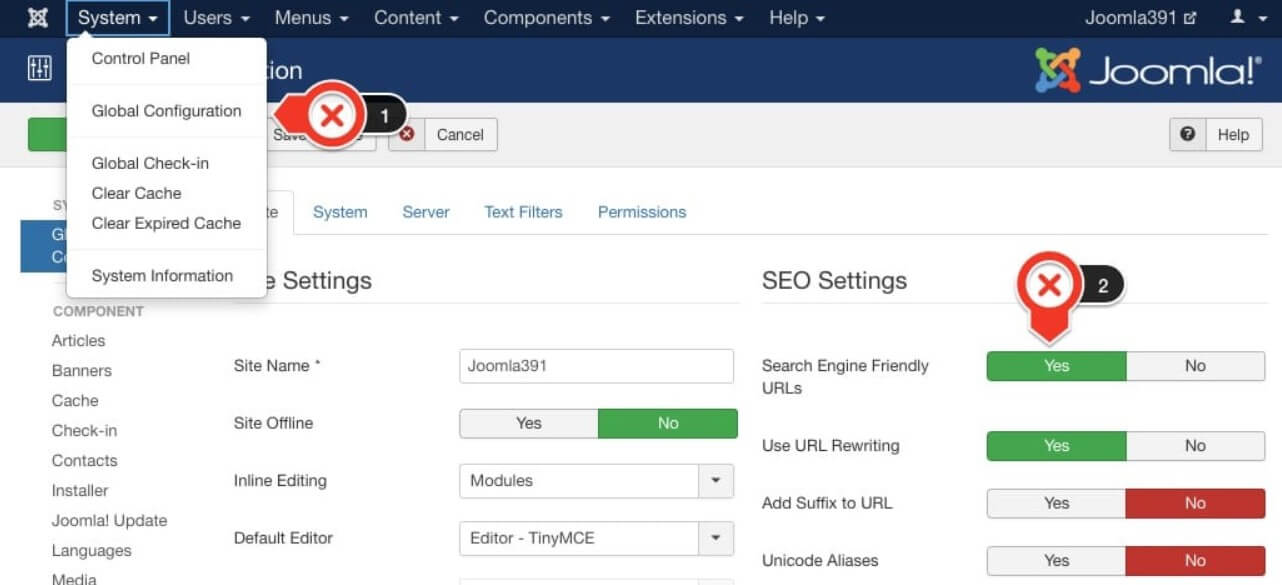
Why Joomla is Great for SEO:
- Metadata Management: Joomla has built-in functionality that allows you to manage meta descriptions and titles, ensuring your content is optimized for search engines.
- SEO Plugins: Just like WordPress, Joomla supports SEO extensions like sh404SEF and EFSEO that help boost your SEO efforts.
- Mobile Optimization: Many of Joomla’s templates are mobile-responsive, which is key for maintaining a strong ranking in Google’s mobile-first index.
- Customizable URLs: Joomla makes it easy to create SEO-friendly URLs right out of the box.
- Content Hierarchies: Joomla's flexibility in structuring your content, from articles to categories, allows you to organize it in an SEO-friendly manner, ensuring better navigation and crawling by search engines.
Joomla offers a slightly steeper learning curve than WordPress, but its advanced capabilities make it a solid choice for businesses seeking a more scalable solution.
3. Shopify: Perfect for SEO in eCommerce
When it comes to eCommerce, Shopify is one of the most trusted CMS platforms available. With a focus on helping businesses sell products online, Shopify is designed with SEO best practices in mind.

Why Shopify Shines for SEO:
- Built-in SEO Tools: Shopify includes tools for managing meta tags, alt text, and descriptions right out of the box.
- Mobile Optimization: All Shopify themes are mobile-responsive, ensuring your site looks great across devices—an essential feature for SEO.
- Fast Load Times: Shopify is built on a robust infrastructure that prioritizes speed, another key ranking factor.
- Customizable URLs: Shopify allows you to customize your URLs to make them more SEO-friendly, although some limitations apply compared to other platforms.
- SSL Certificate Included: Every Shopify site comes with an SSL certificate, improving security and ranking.
While Shopify may have some limitations in terms of URL structures, its powerful built-in features make it a top choice for eCommerce businesses looking to boost their SEO.
4. Wix: The User-Friendly CMS with Growing SEO Potential
Once criticized for poor SEO, Wix has made significant strides in improving its SEO capabilities. This website builder is known for its drag-and-drop interface, making it an excellent choice for small businesses and beginners.
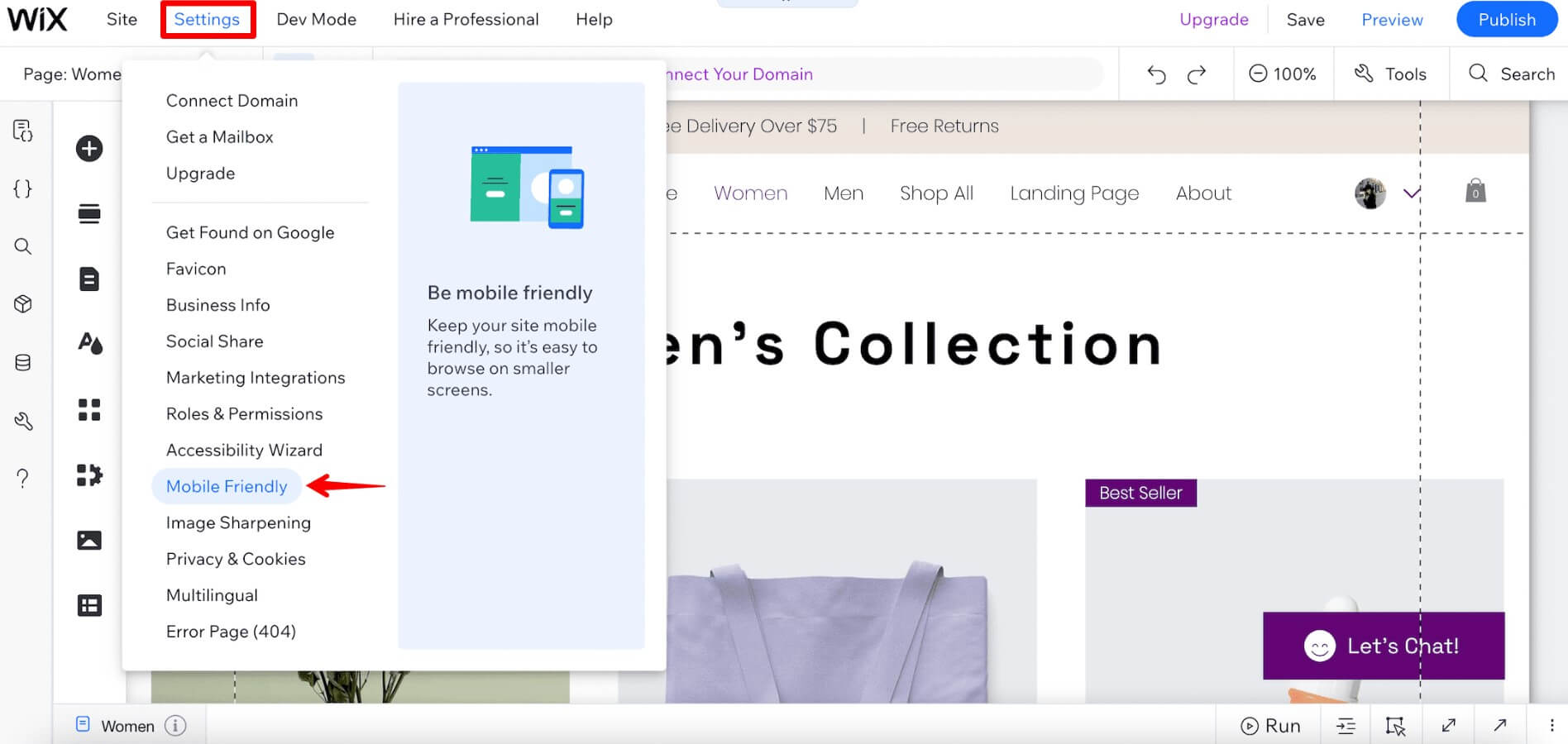
Why Wix is Becoming a Great Option for SEO:
- Wix SEO Wiz: This feature guides users through the process of optimizing their site for search engines, making SEO accessible for beginners.
- Mobile Optimization: Wix sites are automatically mobile-friendly, which helps with ranking in Google’s mobile-first index.
- Fast Load Times: Wix has focused heavily on improving site speed, another important ranking factor.
- SEO Apps: Wix offers a variety of SEO tools, like Google Analytics integration, to help users monitor and improve their SEO.
- SSL Certificates: Every Wix site comes with HTTPS encryption, boosting security and SEO rankings.
Though Wix still has some limitations, particularly in terms of code flexibility, it has become a viable option for those who prioritize ease of use and don’t require extensive SEO customization.
5. Drupal: The Powerhouse for Complex SEO Projects
Drupal is a CMS that’s favored by large organizations and government websites because of its scalability and security features. While it’s not as beginner-friendly as WordPress or Wix, it offers robust tools for those who need to manage complex websites with SEO in mind.
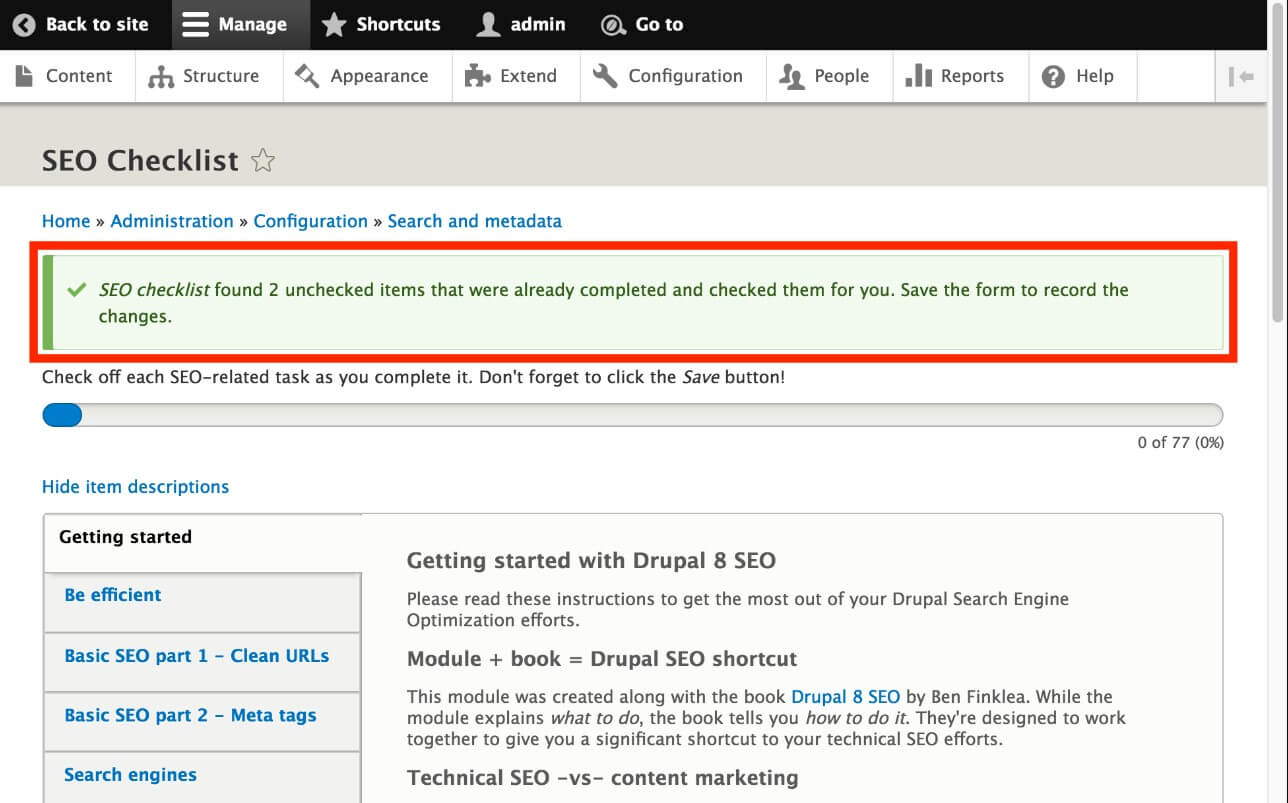
Why Drupal is a Top Contender for SEO:
- Highly Customizable: With Drupal, you can customize almost every aspect of your site’s SEO, from URL structures to metadata.
- SEO Modules: The platform offers powerful SEO modules like Pathauto and Metatag, which help automate essential SEO tasks.
- Mobile-Friendly: Drupal sites can be easily configured to be mobile-friendly, improving performance in mobile search results.
- Security: Drupal’s strong security makes it a trusted platform for large websites, which is important for maintaining user trust and SEO rankings.
- Performance Optimization: Drupal allows for extensive caching and performance tweaks, ensuring your site loads quickly and ranks well in search engine results.
Drupal’s flexibility and customization options make it an excellent choice for websites with advanced SEO needs, but it requires a more technical approach compared to other CMS platforms.
6. Magento: The SEO-Ready Solution for Large eCommerce Sites
Magento is another powerhouse when it comes to eCommerce platforms. Known for its scalability and flexibility, Magento is often used by large online retailers. Its strong SEO features help businesses compete in highly competitive markets.

Why Magento Works Well for SEO:
- Advanced SEO Features: Magento allows for detailed customization of meta tags, descriptions, and URLs.
- Mobile Optimization: Magento sites are responsive, ensuring they perform well across devices.
- SEO Extensions: Magento offers several SEO extensions like SEO Suite Ultimate that enhance the platform’s built-in SEO capabilities.
- Customizable URLs: With Magento, you can easily optimize URLs for search engines, making your site more navigable.
- Built-in Caching: Magento has robust caching options, ensuring fast load times for users, which boosts SEO performance.
While Magento is more complex and often requires a developer for full customization, its rich feature set and scalability make it ideal for large eCommerce businesses with demanding SEO needs.
7. Squarespace: Aesthetics Meet SEO
Known for its beautiful, design-driven templates, Squarespace is a website builder that has improved its SEO features in recent years. It’s a good option for creatives and small businesses who want a visually stunning site that can still perform well in search engine rankings.
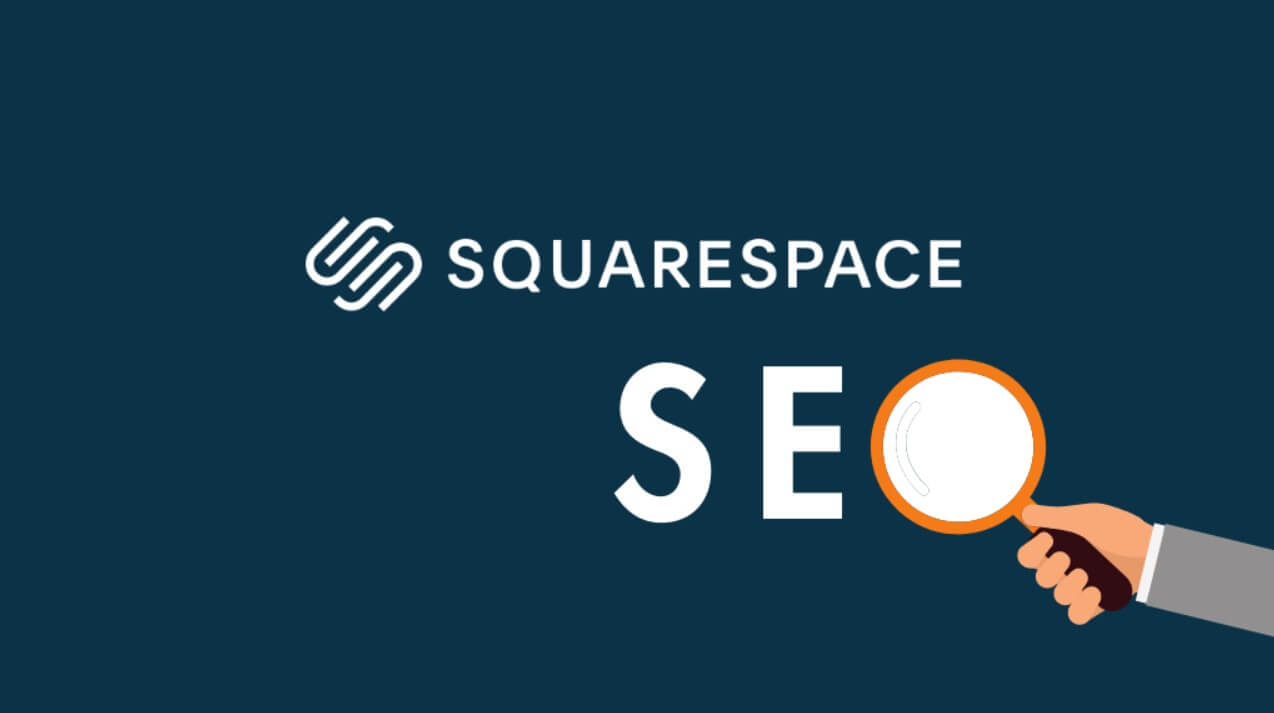
Why Squarespace is a Good CMS for SEO:
- Responsive Design: Every Squarespace template is mobile-responsive, ensuring your site looks great on any device.
- SSL Certificates: Squarespace includes SSL certificates with every plan, which enhances security and SEO rankings.
- SEO-Friendly Tools: Squarespace allows users to add meta titles and descriptions, customize URLs, and integrate with Google Analytics.
- Clean Code: Squarespace templates are optimized for fast load times and clean code, both essential for SEO.
- Social Media Integration: The platform makes it easy to integrate social media, which can help drive traffic and improve your site’s authority.
Although Squarespace doesn’t offer as much SEO flexibility as WordPress or Drupal, it provides a solid foundation for small businesses that prioritize design but still want to rank well in search engines.
8. Weebly: Simple Yet Effective for SEO
Weebly is another drag-and-drop website builder that's known for its simplicity and ease of use. While it may not have the advanced features of WordPress or Magento, it’s a strong contender for small businesses or personal websites that need basic SEO functionality.
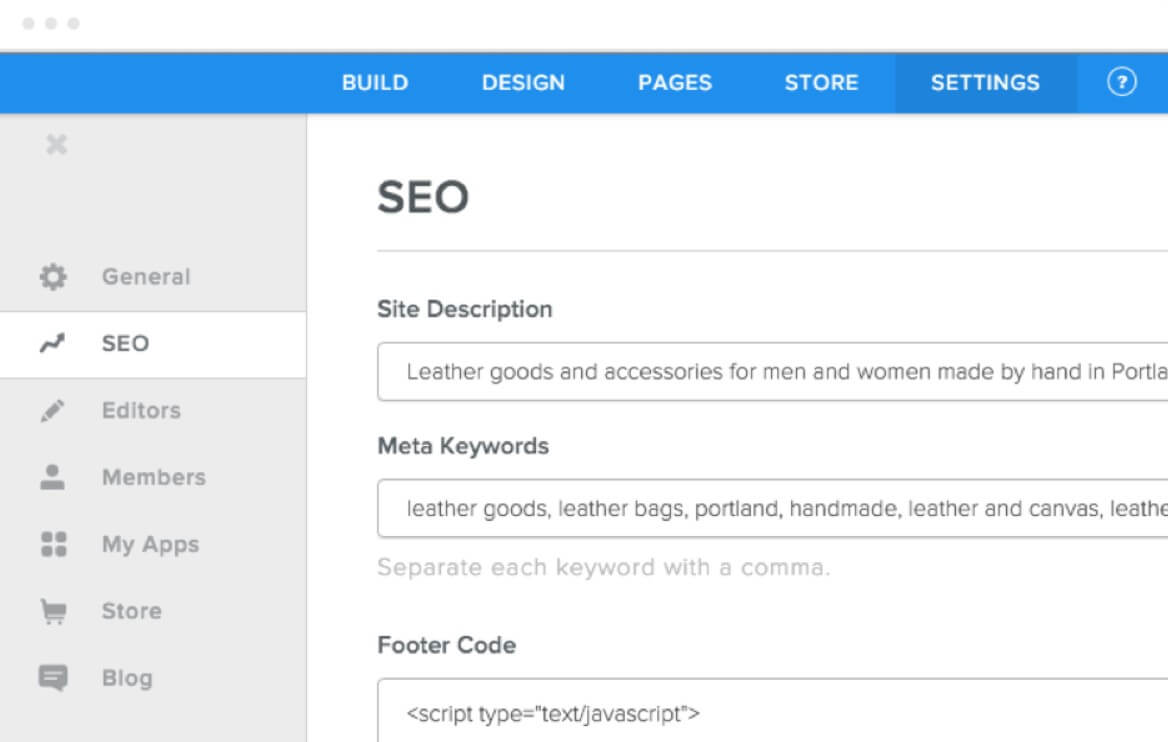
Why Weebly Can Help Your SEO Efforts:
- Mobile-Friendly: All Weebly templates are responsive, ensuring your site performs well on mobile devices.
- SEO Tools: Weebly includes basic SEO features like meta tags, descriptions, and alt text for images.
- Fast Loading Speeds: Weebly sites tend to load quickly, which is a critical ranking factor for search engines.
- SSL Encryption: Weebly provides HTTPS encryption for all sites, improving security and rankings.
- Easy-to-Use Interface: Its simplicity means you can focus on content creation and SEO without needing to dive into complex settings or code.
Weebly is perfect for users who want to build a functional site without extensive technical knowledge. Though it may lack some advanced SEO tools, its simplicity and ease of use are perfect for smaller websites.
9. Ghost: A Niche CMS for Content-Centric SEO
Ghost is a streamlined CMS built specifically for content creators and bloggers. It’s a lightweight, open-source platform that focuses on speed and simplicity, making it ideal for SEO-driven content marketing.

Why Ghost is SEO-Friendly:
- Clean and Fast: Ghost is known for its blazing-fast load times, which significantly boosts SEO rankings.
- SEO Features Built-In: Ghost includes built-in SEO features like customizable meta tags, descriptions, and automatic sitemaps.
- Mobile-First Approach: Ghost is designed with mobile performance in mind, making it great for sites targeting mobile users.
- Simple URL Structures: The platform automatically generates clean, SEO-friendly URLs, reducing the need for manual adjustments.
- Markdown-Based Content: Ghost’s content editor is focused on speed and efficiency, allowing creators to focus on writing optimized content without distractions.
Ghost is perfect for bloggers and content marketers who need a fast, no-nonsense platform that prioritizes content and SEO without unnecessary features.
10. BigCommerce: The Enterprise-Level CMS for SEO
BigCommerce is another powerful eCommerce platform, particularly suited for large businesses with a focus on scalability and performance. It offers a wide range of SEO features that make it a strong competitor in the world of online retail.

Why BigCommerce is Ideal for SEO:
- Advanced SEO Tools: BigCommerce allows for detailed meta tag customization, URL structure optimization, and automatic sitemap generation.
- Mobile Optimization: All BigCommerce themes are responsive, helping sites perform well on mobile devices.
- Fast Load Times: The platform is built to handle high traffic and large inventories, ensuring fast loading speeds—a crucial ranking factor.
- SEO-Friendly URLs: BigCommerce provides options for clean, customizable URLs, which are critical for search engine crawling.
- Rich Analytics Integration: BigCommerce integrates easily with Google Analytics and other SEO tools to help monitor and improve your site's performance.
With its enterprise-level capabilities, BigCommerce is perfect for large eCommerce operations looking to enhance their SEO and drive traffic to their site.
Conclusion: Choosing the Right CMS for SEO
Choosing the best content management system for SEO depends on your specific needs, goals, and technical expertise. Platforms like WordPress and Shopify excel for their ease of use and extensive SEO features, while Drupal and Magento offer unmatched customization for those willing to invest more time and resources. Smaller businesses or individuals might find Wix, Weebly, or Squarespace sufficient for their SEO needs, especially if ease of use and design are top priorities.
Regardless of which CMS you choose, focusing on mobile optimization, fast load times, secure HTTPS connections, and SEO best practices like meta tags and keyword-rich URLs will go a long way toward improving your site's search engine performance.
FAQs
1. Which CMS is best for beginners when it comes to SEO?
For beginners, WordPress and Wix are excellent choices due to their user-friendly interfaces and built-in SEO features.
2. Is Shopify a good CMS for SEO in eCommerce?
Yes, Shopify is one of the best platforms for eCommerce SEO due to its fast load times, mobile optimization, and built-in SEO tools.
3. Can you optimize a Squarespace site for SEO?
Yes, Squarespace includes essential SEO tools like customizable meta tags, SSL encryption, and mobile-responsive designs, making it good for basic SEO.
4. What is the best CMS for advanced SEO needs?
For advanced SEO, Drupal and Magento are excellent options due to their high level of customization and scalability.
5. How important is mobile optimization for SEO?
Mobile optimization is critical for SEO, especially with Google’s mobile-first indexing. All the CMS platforms listed here offer mobile-responsive templates or themes.
6. Is Weebly good for SEO?
While Weebly may lack some advanced features, it’s still a solid choice for basic SEO, particularly for small businesses or personal websites.





